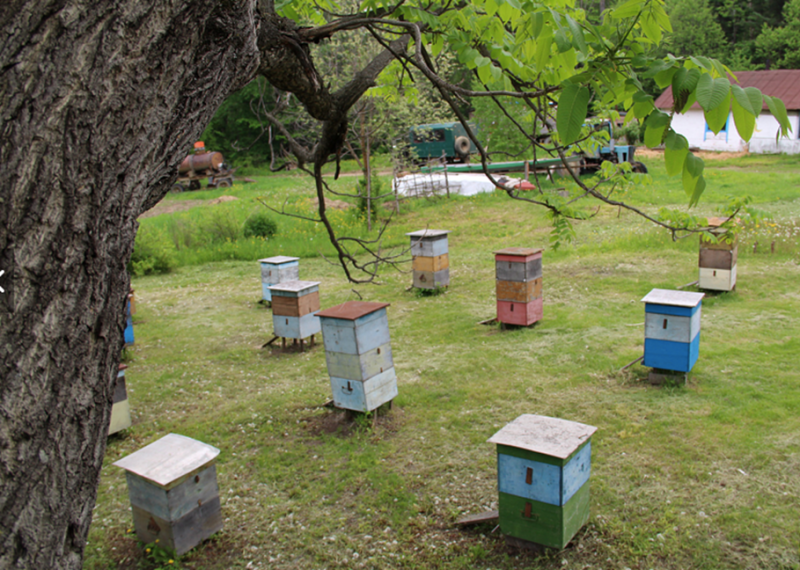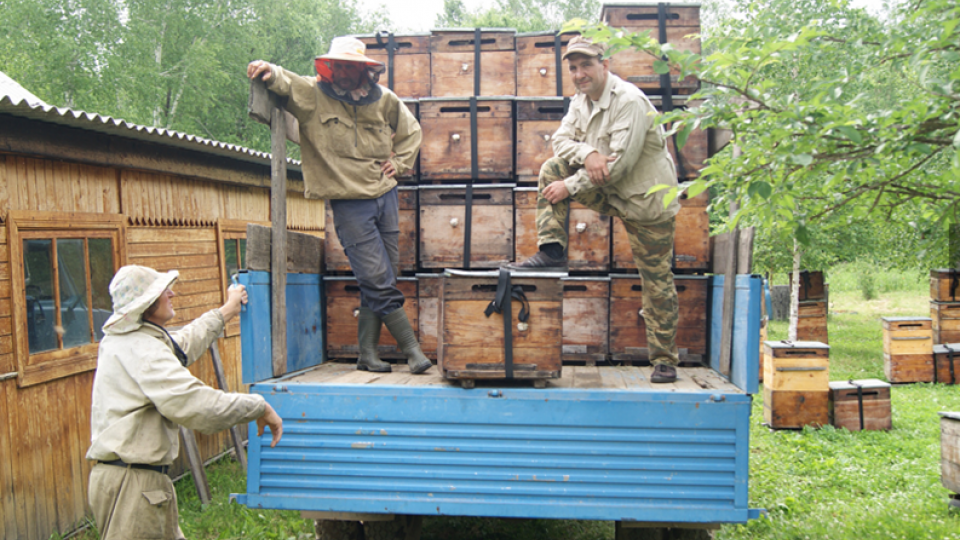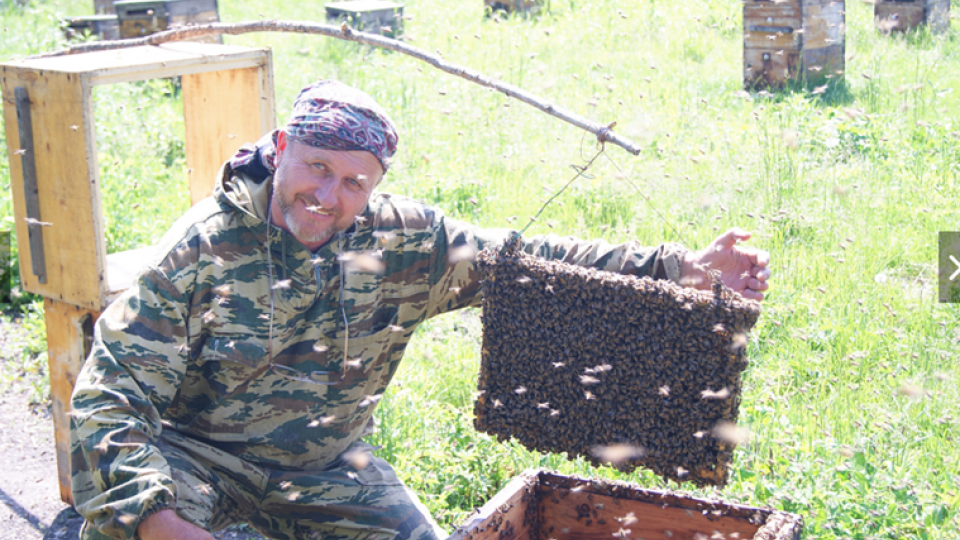Among all insects, honeybees have ensured a special place in history, manifested in art, literature, myths, and symbols. Ancient Greeks rendered honeybees as divine creatures traveling between the realms of mortal humans and the immortal gods while providing various social, magical, and moral functions. Aristotle, who in his Historia Animalium was the first to offer a systemic account of the lives of bees, viewed the practice of beekeeping as an example of collaboration between humans and bees, good for the household economy (oikonomia) and for the character development of the people who engaged in it. In his opinion, beekeeping taught them to become more ethical (aretê) and therefore happier (eudaimon) persons through acquiring the virtues of humility and hard work exhibited plentifully by bees.
The contemporary practice of beekeeping, however, is largely ignorant of these Aristotelian observations. It relies, for the most part, on the rationality of utility maximization and on elaborate regulations and standards. Yet in the circumstances of small-scale enterprises practiced in remote and underdeveloped rural areas, where one has to rely for one’s livelihood on ecosystem-based services rather than on the economy of scale, away from international market flows and regulatory precision, Aristotle’s necessary virtues for practicing beekeeping are still very relevant.
The forest beekeepers of Primorsky province, the southern corner of Russia’s Far Eastern region, demonstrate—unknowingly—the relevance of Aristotelian insight. The province is famous for its primary mixed broadleaved and conifer forests, the most biologically diverse in northern Asia. Honeybees were originally brought here by European settlers in the late-nineteenth century. Since then, due to natural selection and the work of local scientists, the honeybee has evolved into the honeybee of far-eastern Russia, a species resilient to harsh climate conditions. The beekeepers also adapted to changing economic forces, which are likewise variable and harsh.

A forest beekeeping site conserved for a long winter season. Krasnoarmeysky district of Primorsky province, in the range of Sihote-Alin mountain, habitat of the Siberian tiger.
A forest beekeeping site conserved for a long winter season. Krasnoarmeysky district of Primorsky province, in the range of Sihote-Alin mountain, habitat of the Siberian tiger.
© 2018 Elena Feditchkina Tracy.
Used by permission.
The copyright holder reserves, or holds for their own use, all the rights provided by copyright law, such as distribution, performance, and creation of derivative works.
During the late Soviet Union, forest beekeeping was common, providing secondary income to many rural populations. A well-organized distribution structure took care of honey marketing and sales via the network of co-ops run by the state, through which rural populations could sell forest honey, along with pine nuts, berries, mushrooms, and other “gifts of the forests,” which were for distributed and resold in specialized stores called “Dari Taigi” (“Gifts of Taiga”) run in many rural towns and large cities. After the collapse of the Soviet economy, the system of state-run forest co-ops was discontinued, leaving beekeepers to their own devices in terms of honey marketing and sales.
Roughly 6,500 to 7,000 people are now involved in forest beekeeping in Primorsky, maintaining up to 75,000 bee colonies. Most honeybees are kept in small backyard apiaries or in moveable beehives. There are now very few employment opportunities available in rural areas, therefore beekeeping has become the only source of income and livelihood for many people. The majority of Primorsky beekeepers are of retirement age, receiving very small state pensions, insufficient to cover the cost of living. Having learned beekeeping from their parents and grandparents decades ago, they continue practicing it in the old-fashioned way. Working in the wilderness of primary forests, beekeepers have to move their beehives several times per summer, following the blossoming schedule of the three linden species famous for their fragrant nectar-giving flowers: the Amur linden (Tilia amurensis), Taquetii linden (Tilia taquetii), and Manchurian linden (Tilia mandshurica).
This small-scale forest beekeeping remains almost invisible to outsiders. A traveler, however, would soon start to realize that the region has many honeybees, with local markets and rural stands located along roadways selling a wide variety of forest honeys made and packaged locally. Yet despite its low-key presence, forest beekeeping generates significant social, economic, and environmental benefits: it creates employment, keeps people in rural areas, and helps to sustain the forest’s ecological balance. It is also a collaborative enterprise, bringing together people to establish cooperative networks. It is no accident that the very first association of Primorsky’s rural entrepreneurs was formed by beekeepers—the Union of Primorsky Beekeepers.
Today, beekeepers face a battle with a powerful adversary—big logging companies involved in unlawful logging activities. Roughly the equivalent of half a million cubic meters of roundwood linden, highly esteemed for its plasticity, are exported annually from Primorsky to China, to feed massive global demand for cheap furniture and flooring material. Until 2007, commercial logging of linden trees was prohibited. These regulations became void after Russia adopted a new forestry code. Ramil Enikeev, the head of the Primorsky Beekeepers’ Union, said during the Beekeeping Forum held on 14 November 2018 in Vladivostok, the capital of Primorsky province, that the rapid elimination of linden trees was reaching the point of no return.
Seeing how the very foundation of their livelihoods is being destroyed, Primorsky beekeepers are now advocating the adoption of a complete ban on the commercial logging of linden trees. From being invisible and humble, beekeepers are now becoming vocal and civically minded, attending public hearings and making petitions. It is the way of life they would like to preserve—working with honey bees, in the wilderness of beautiful forests. The standard explanation—economic utility maximization—cannot fully account for the resilience of these people, who are willing to continue despite the odds. Aristotle offers a better insight on the behaviour he described as virtuous, as a prerequisite for having a fulfilling life.
How to cite
Feditchkina Tracy, Elena. “Virtuous Bees: How Beekeeping Helps Protect Primary Forests in the Russian Far East.” Environment & Society Portal, Arcadia (Spring 2020), no. 11. Rachel Carson Center for Environment and Society. doi.org/10.5282/rcc/8995
ISSN 2199-3408
Environment & Society Portal, Arcadia
 This work is licensed under a Creative Commons Attribution 4.0 International License.
This work is licensed under a Creative Commons Attribution 4.0 International License.
2020 Elena Feditchkina Tracy
This refers only to the text and does not include any image rights.
Please click on the images to view their individual rights status.
- Aristotle. Historia animalum. Translated by D’Arcy Wentworth Thompson. Oxford: Clarendon Press, 1910.
- Aristotle. Nicomachean Ethics. Translated by Terence Irwin. Second Edition. Indianapolis: Hackett Publishing, 2010.
- Aksenova, D. E., M. Yu. Dubininb, M. L. Karpachevskiyc, N. S. Liksakovad, V. E. Skvortsove, D. Yu. Smirnovf, and T. O. Yanitskayag. “Mapping High Conservation Forests of Primorsky Krai, Russian Far East.” Moscow and Vladivostok: Global Forest Watch Russia and WWF, 2006.
- Domènech, Rut, Elena F. Tracy, Marta Rovira, and Evgeny Lepeshkin. Beekeeping in Primorsky Province: Challenges and Opportunities: A Needs Assessment. Solsona and Moscow: Forest Science and Technology Centre of Catalonia (CTFC) and WWF Russia, 2019.











